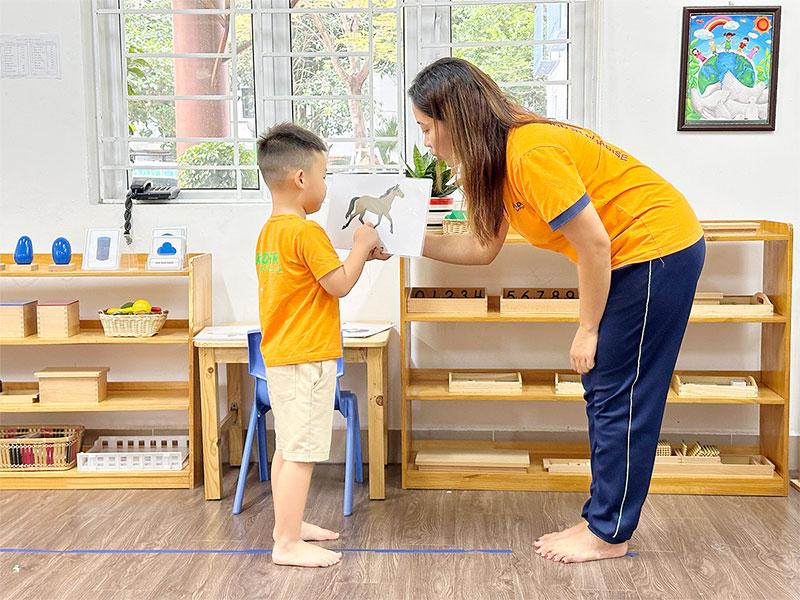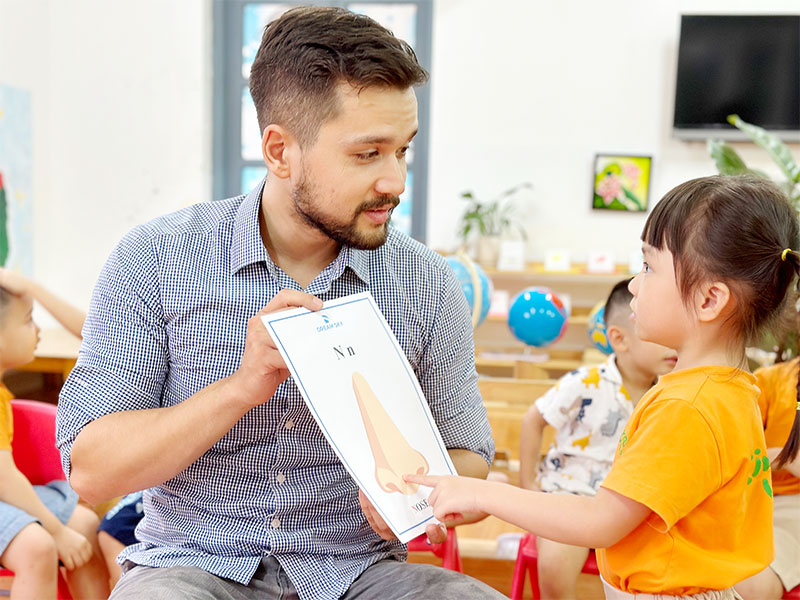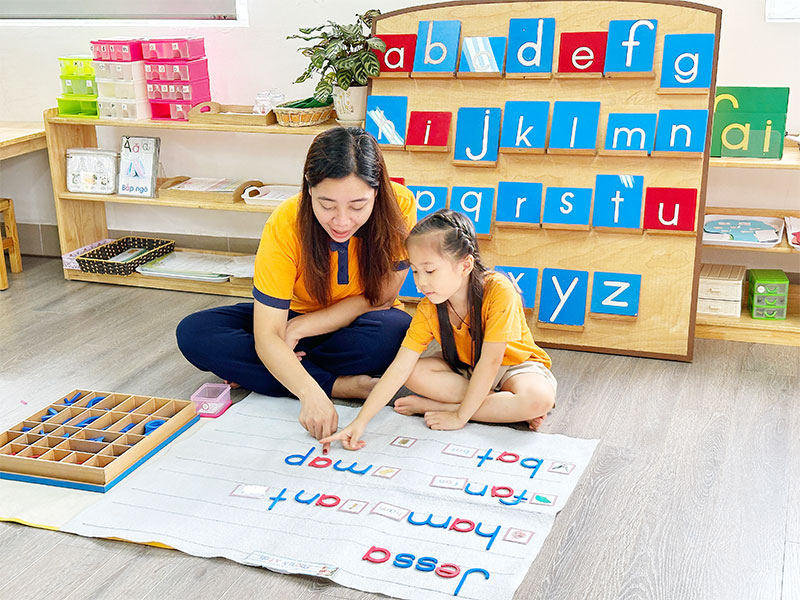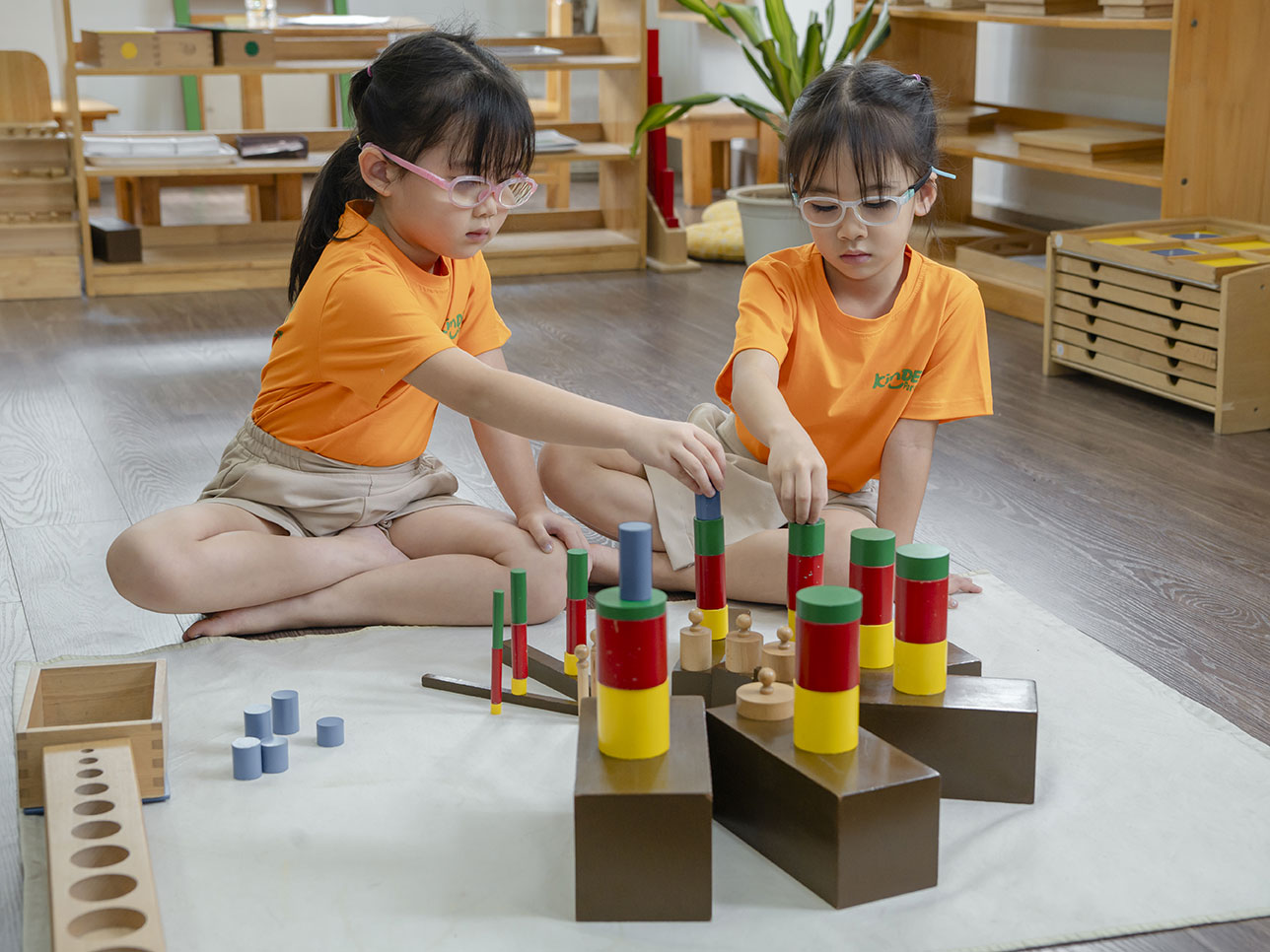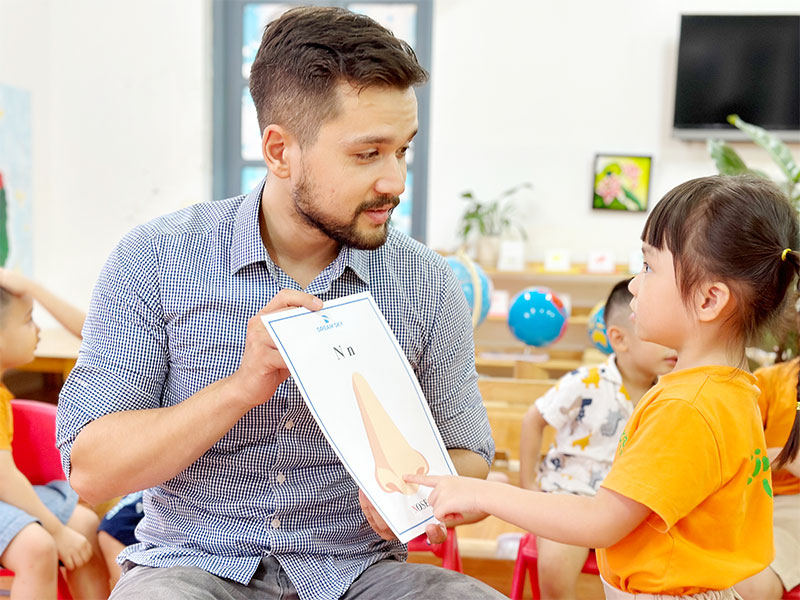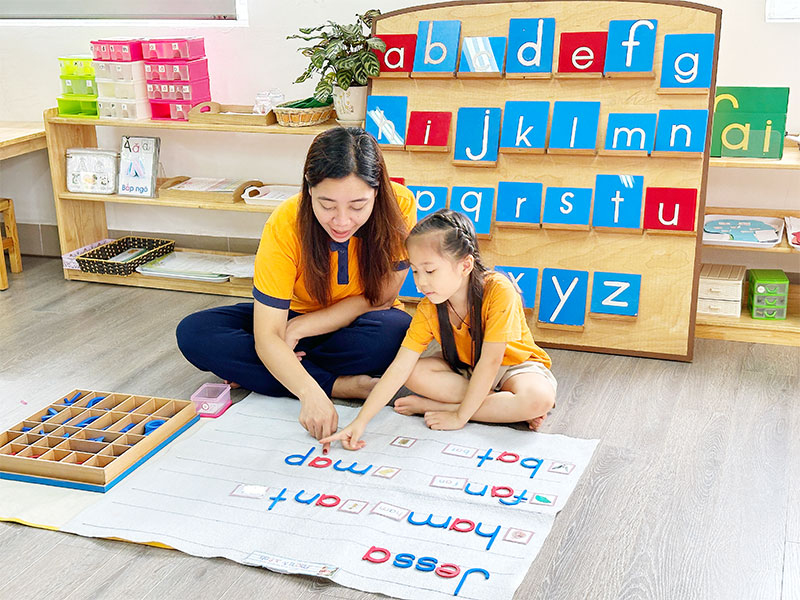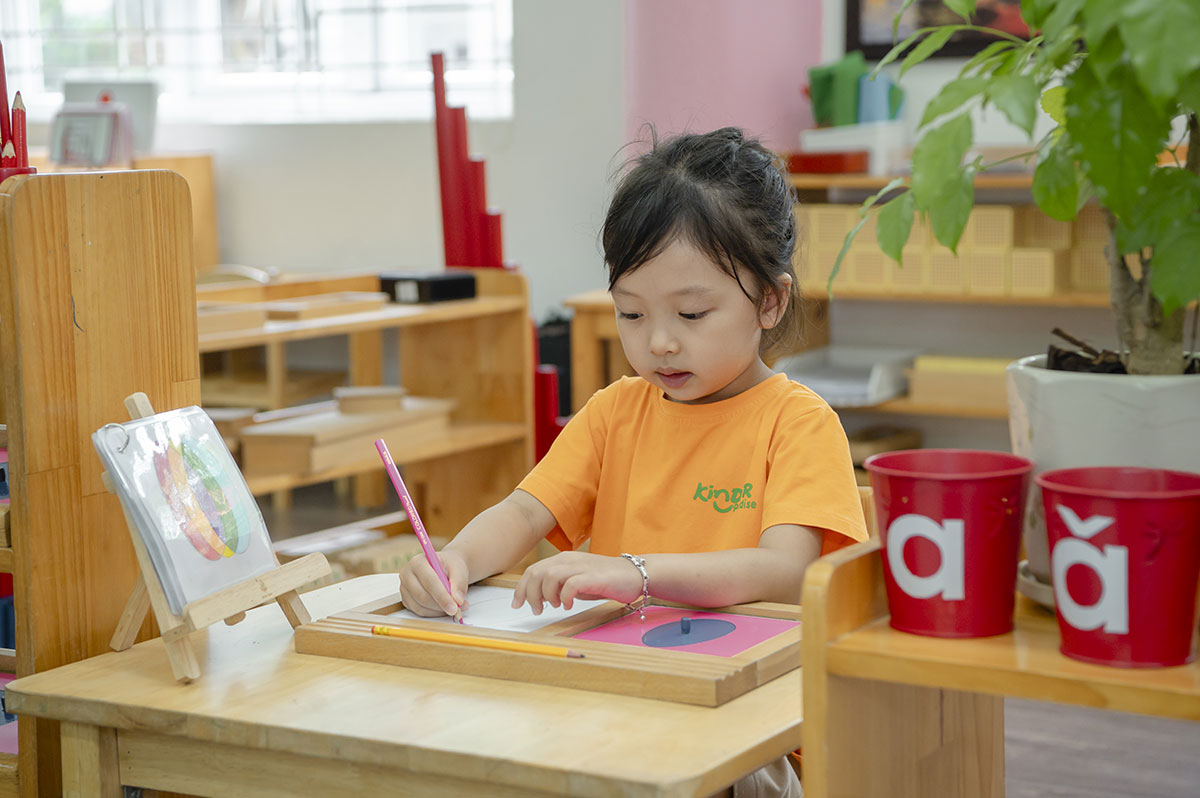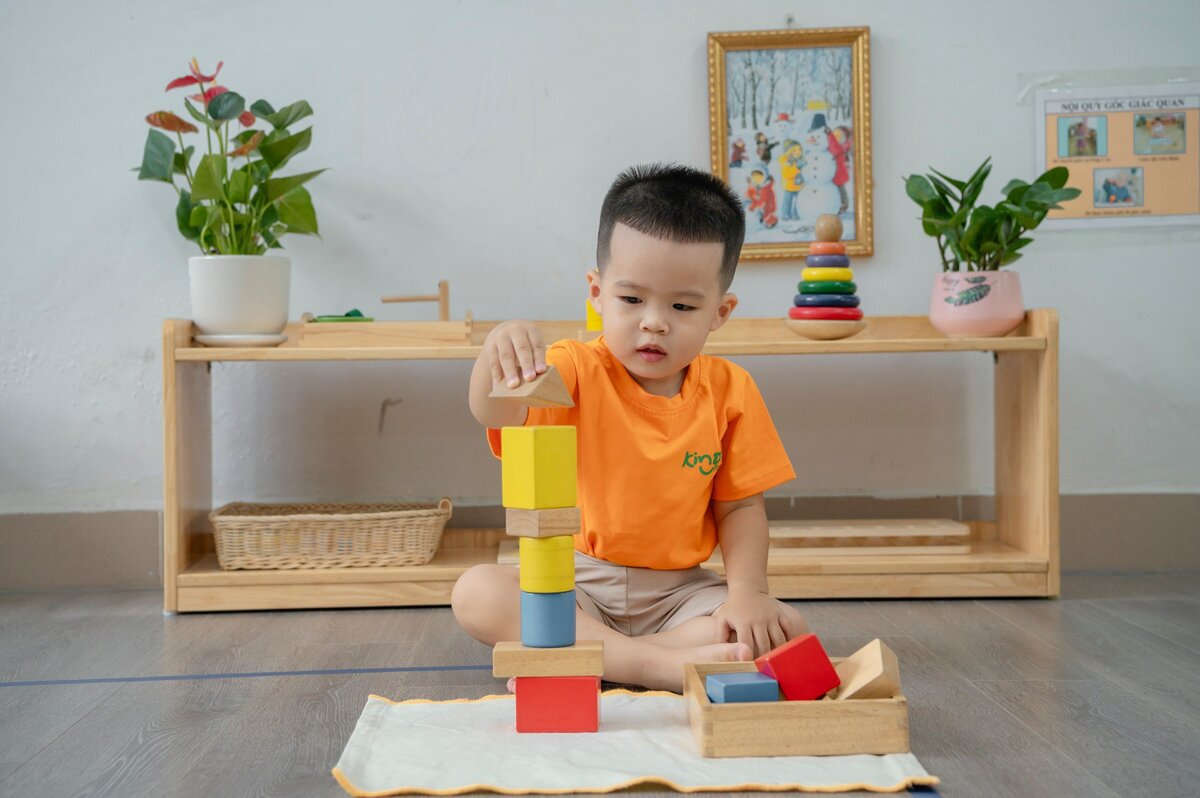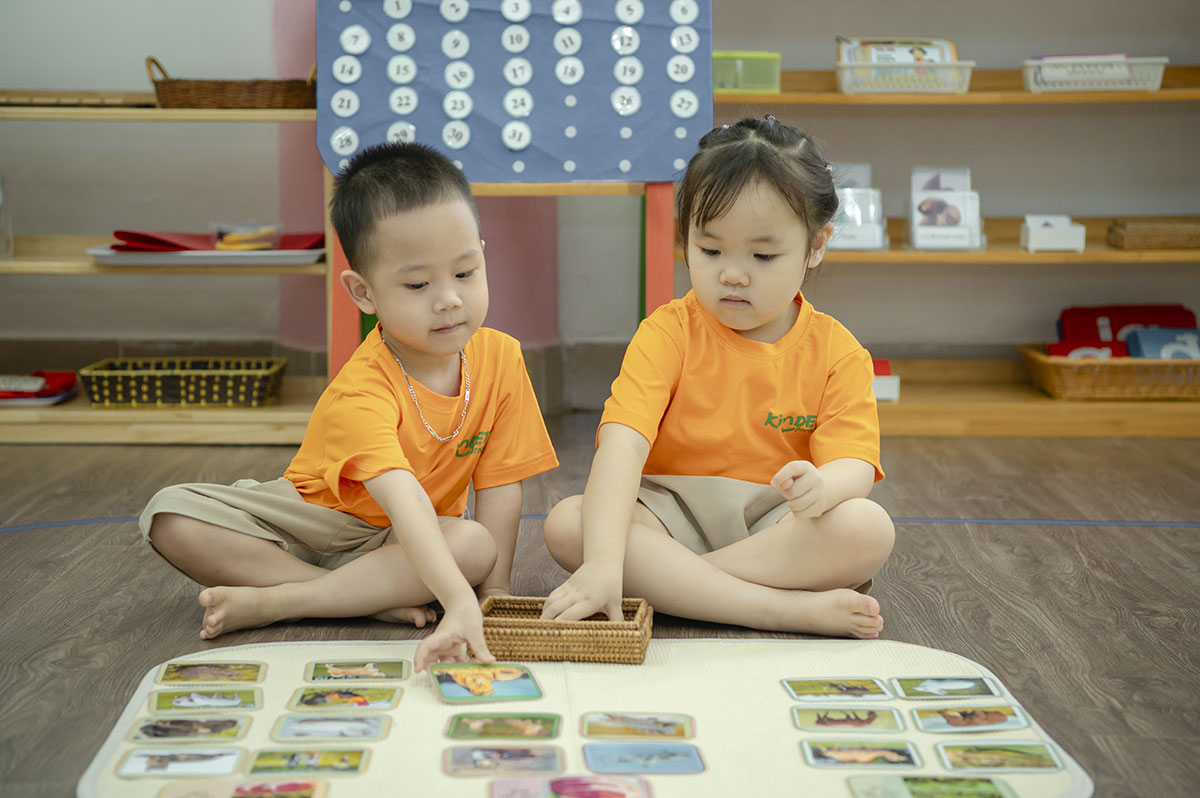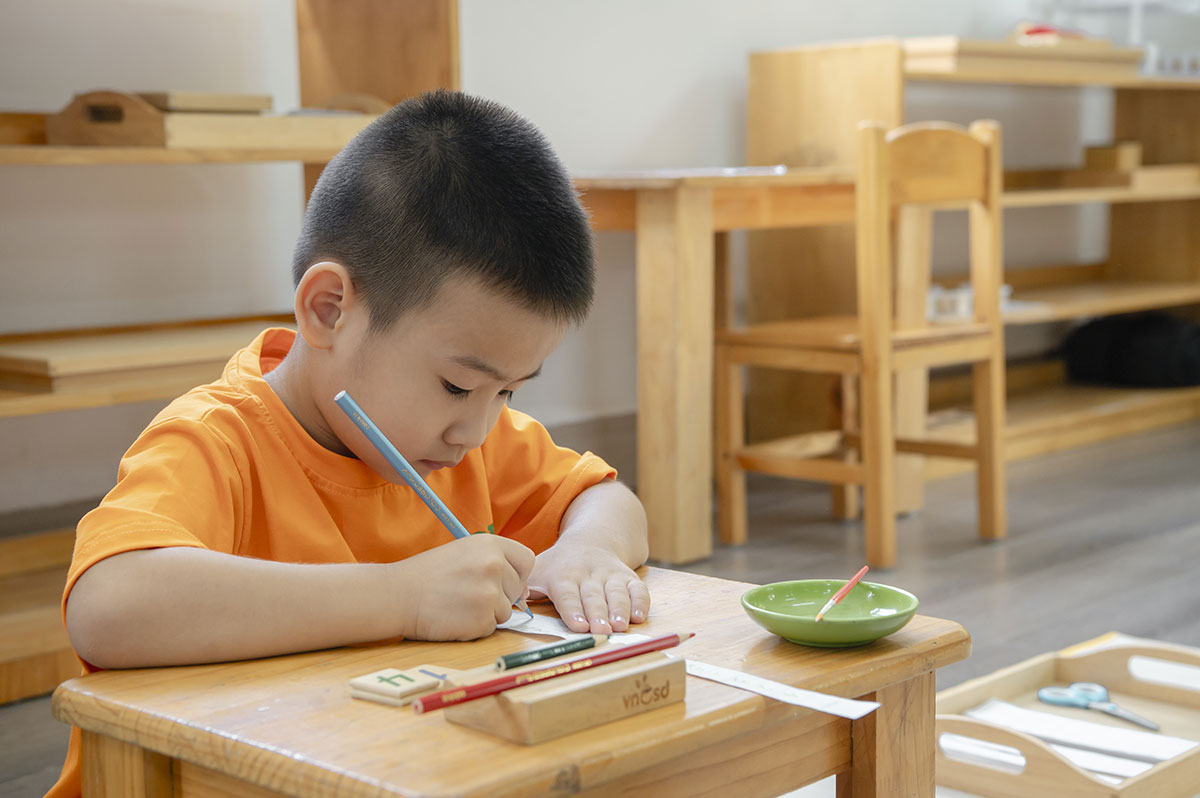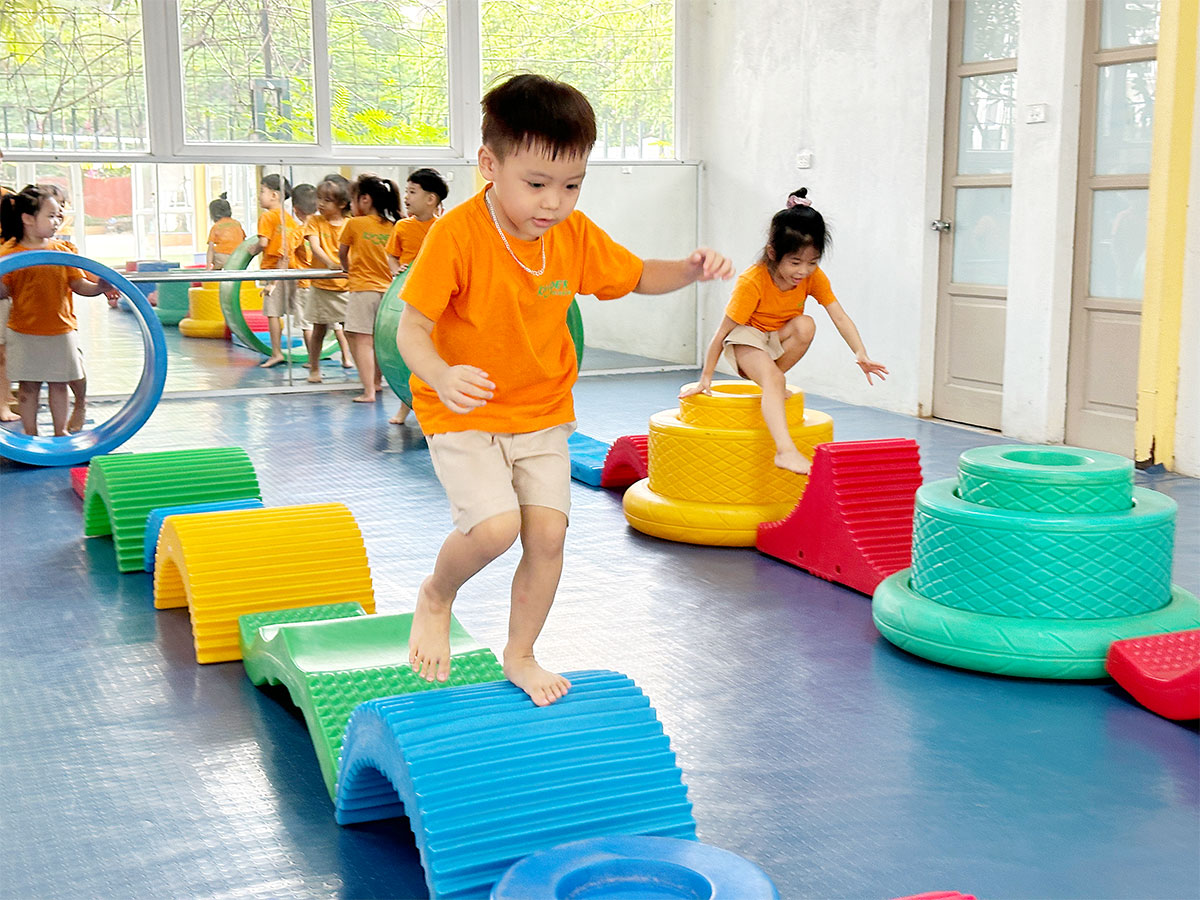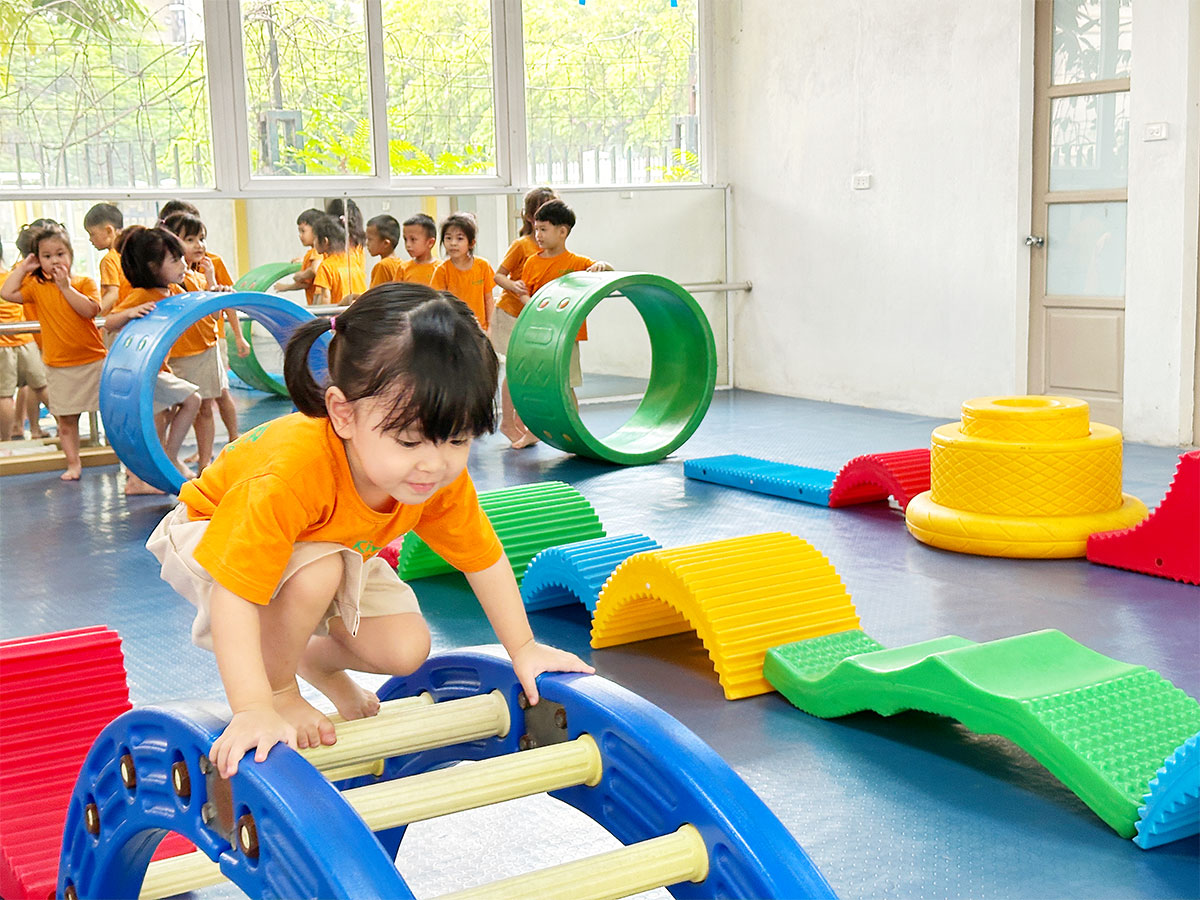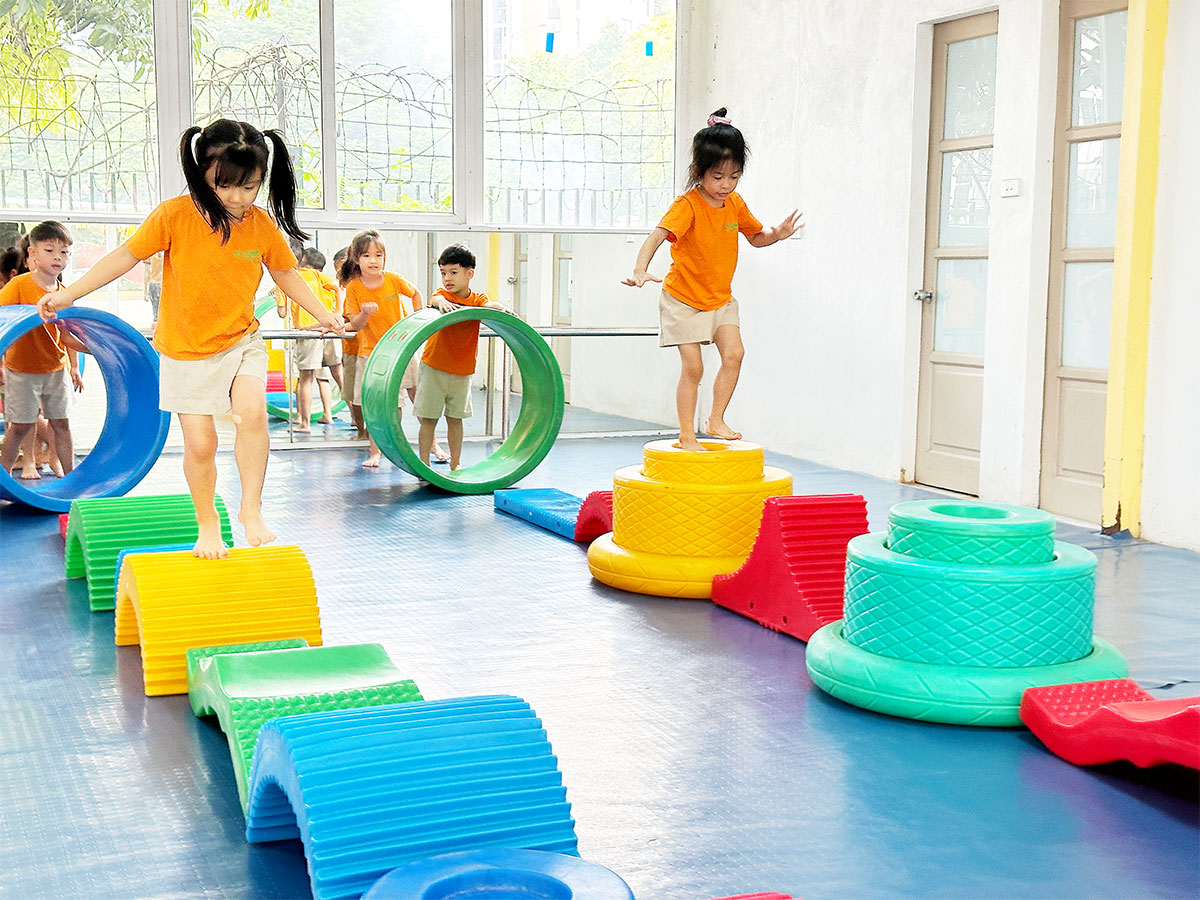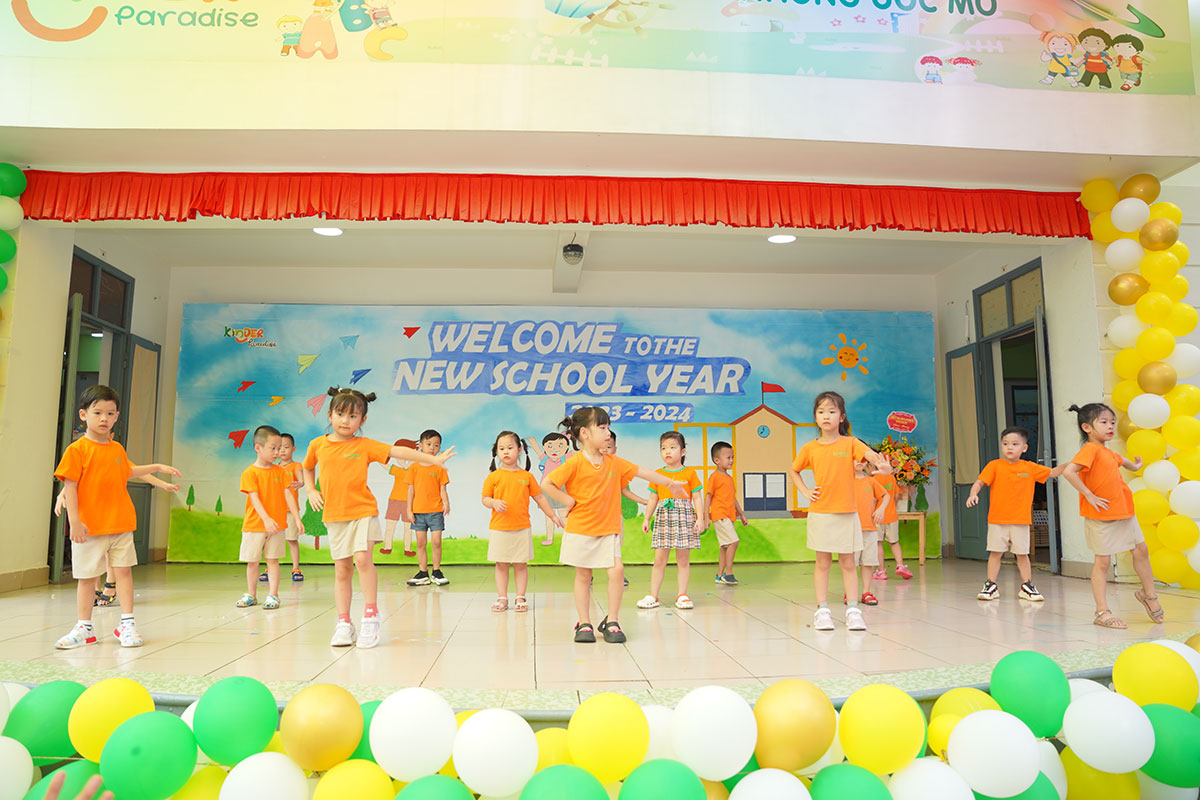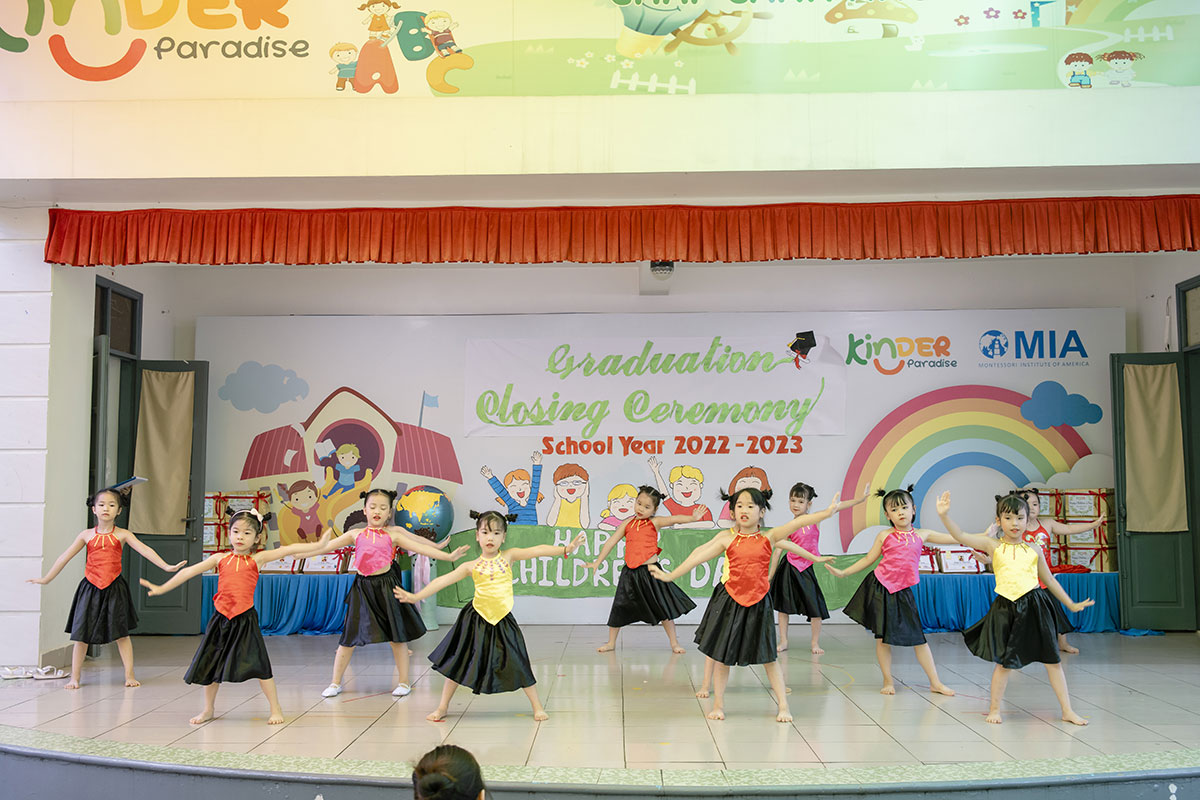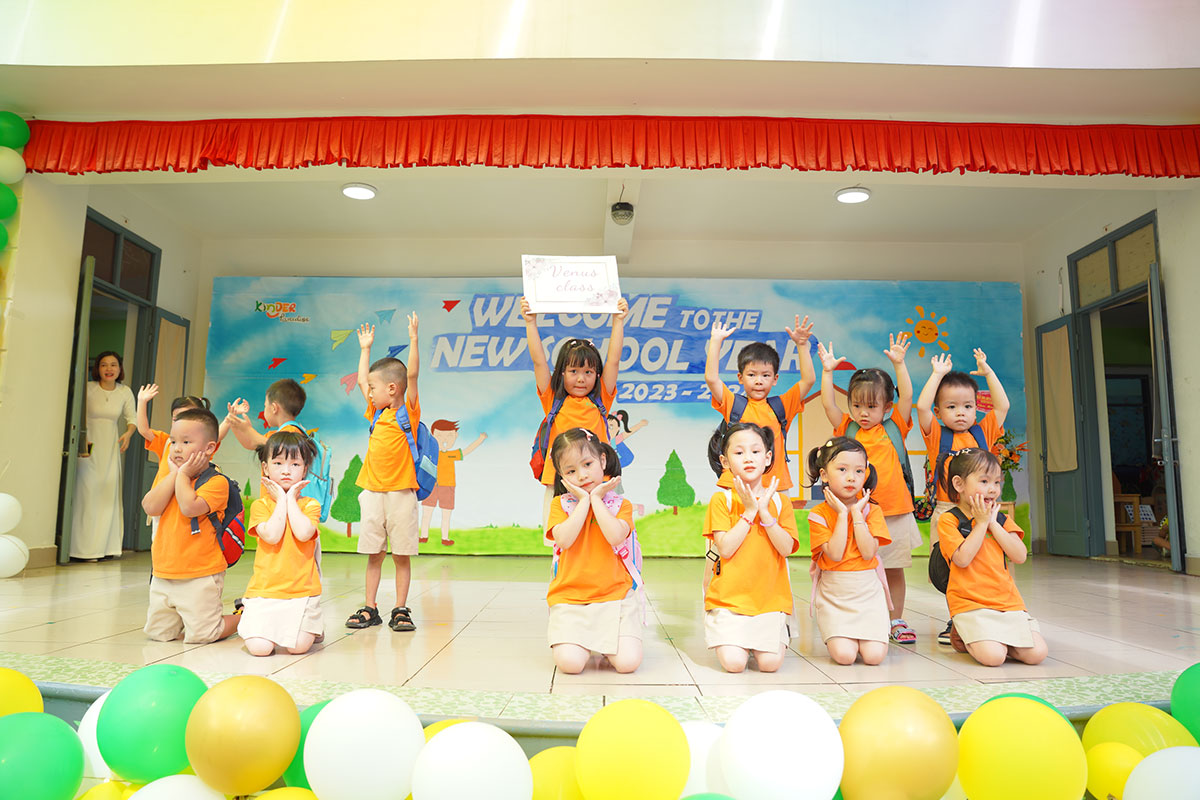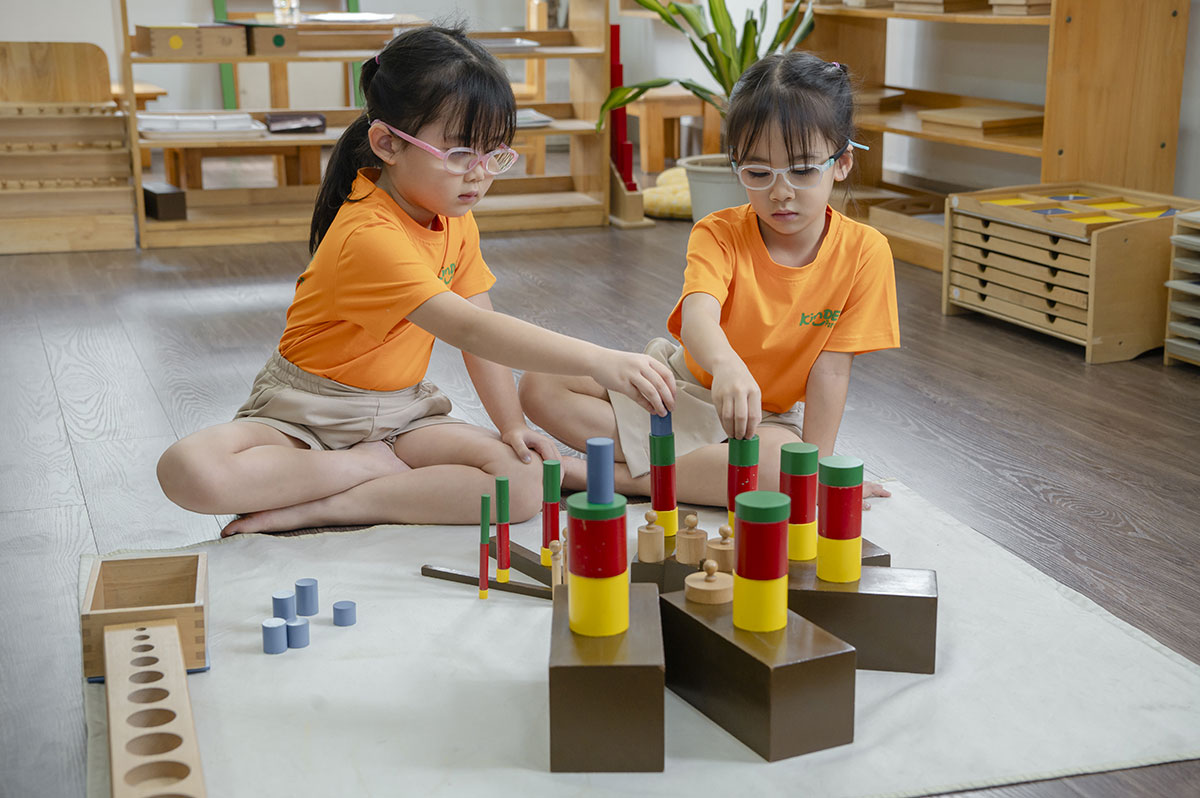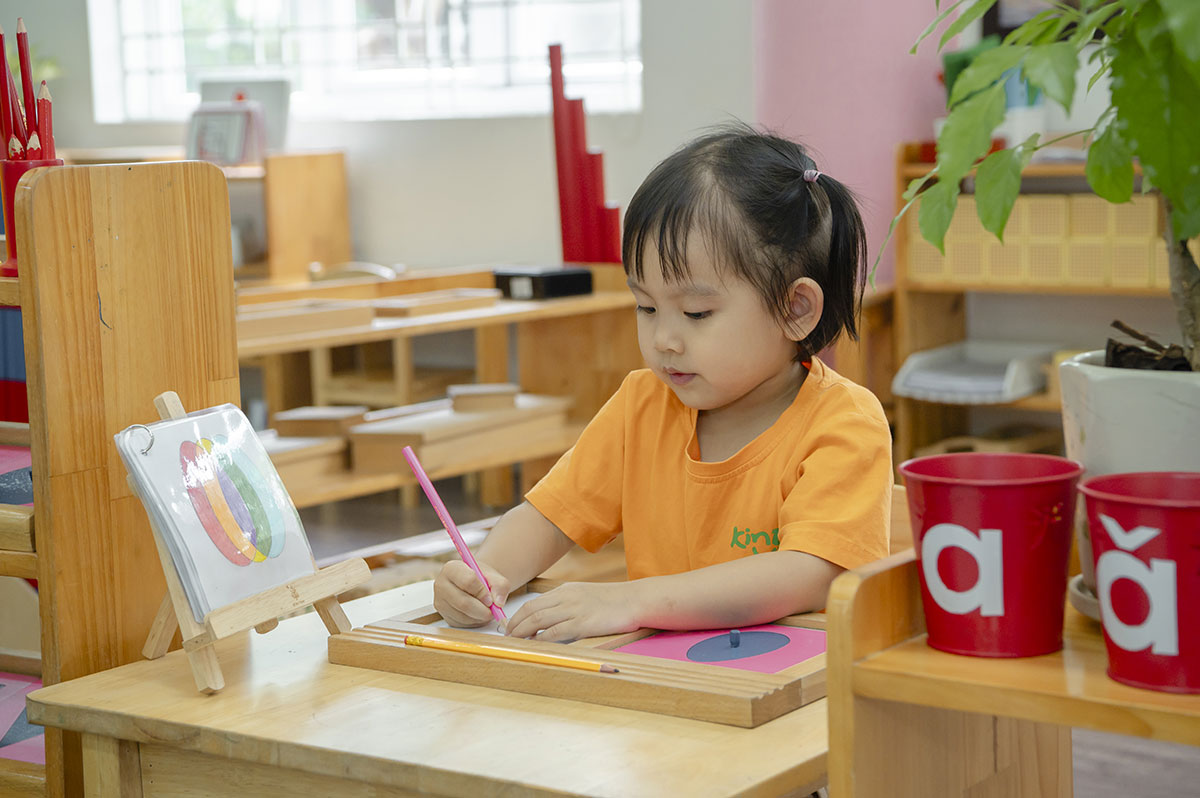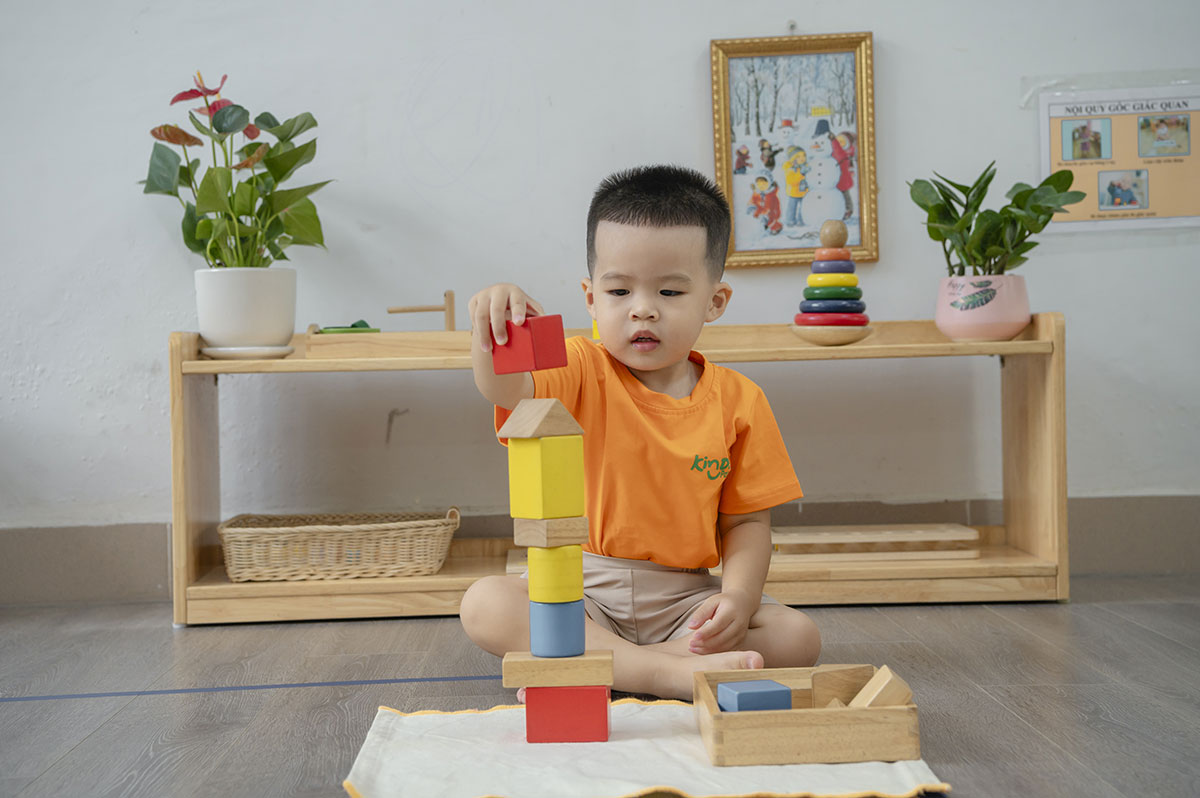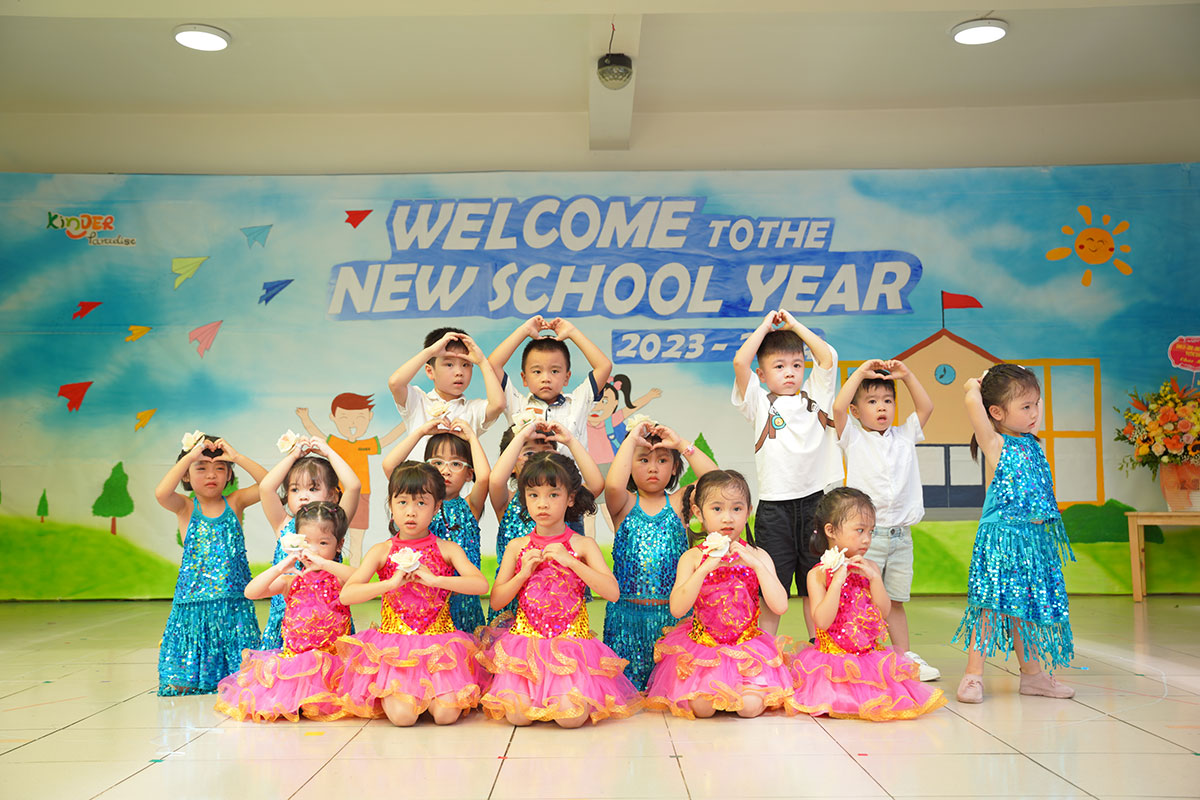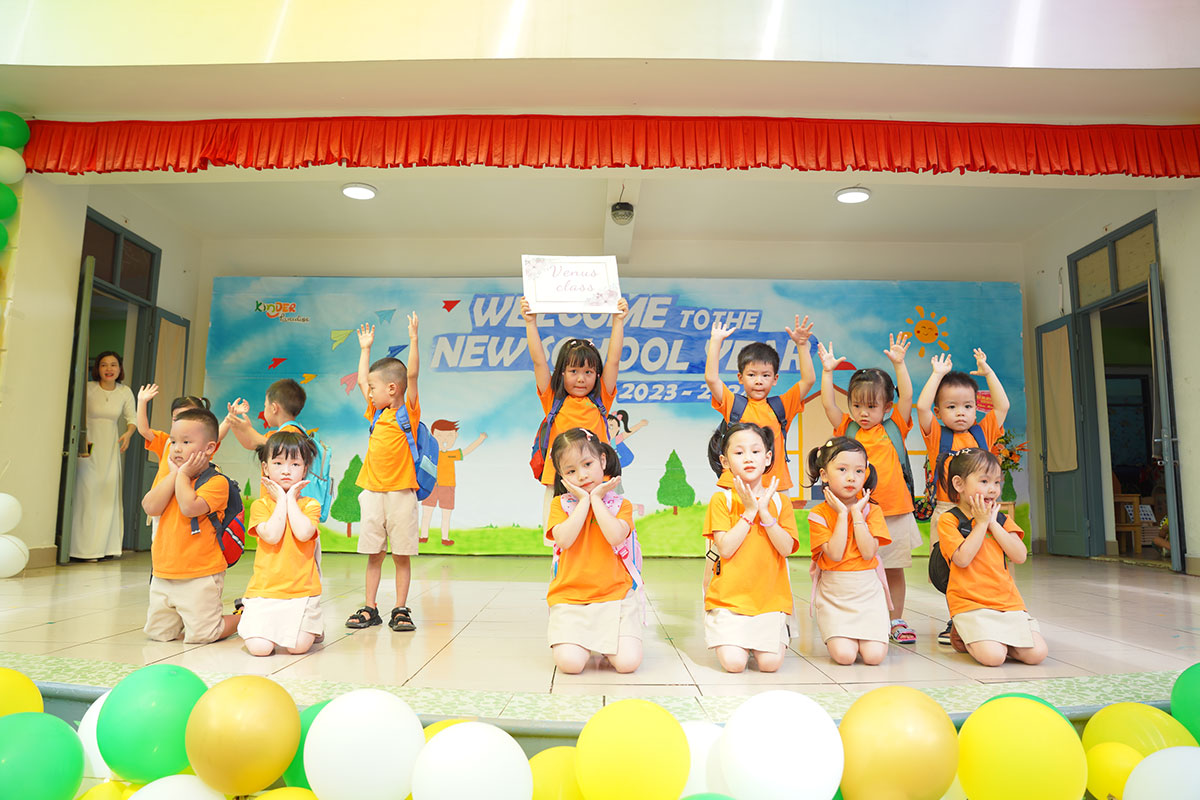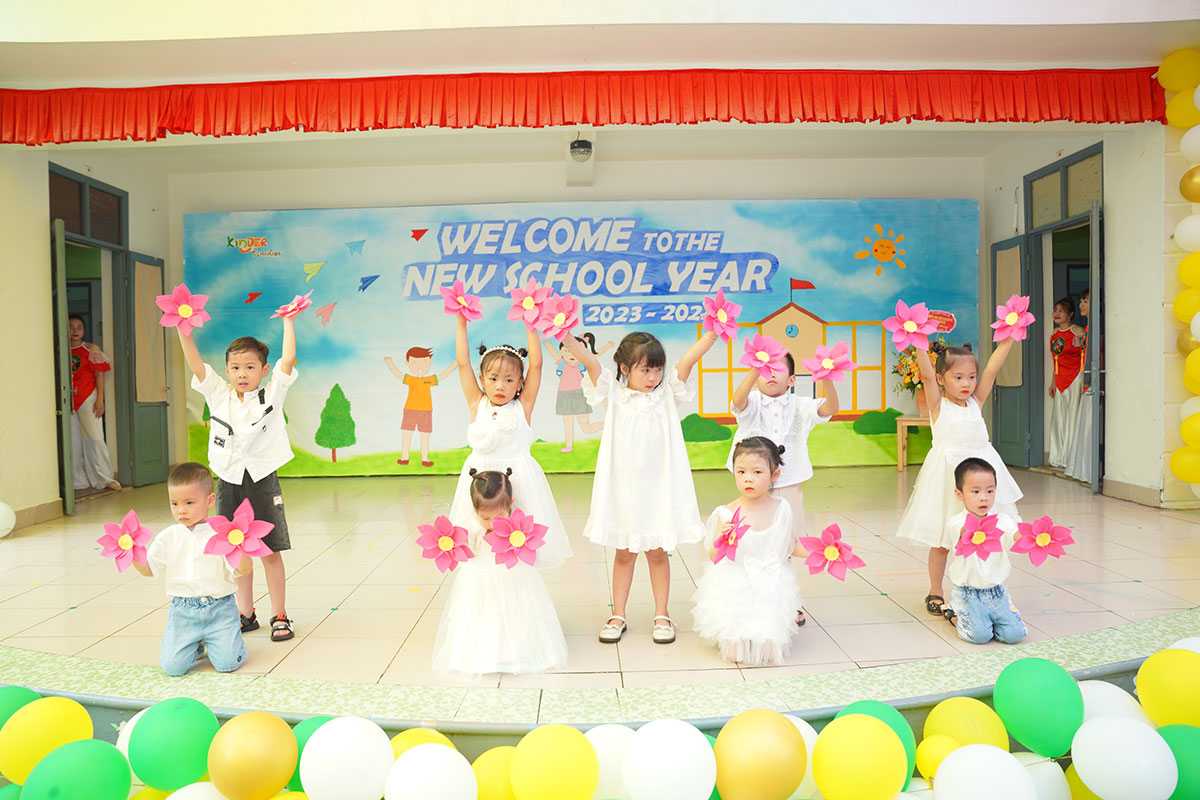Montessori Programmes
Kinder Paradise Montessori has researched and built an innovative curriculum, combining the world's leading educational methods, Montessori and STEM. We always strive to improve the program so that children can experience, interact, explore and develop their potential.
- MONTESSORI TEACHER
The role of a Montessori teacher is to guide and observer, whose ultimate goal is to motivate more and more independent discovery as the child develops. Classes are kept in small groups with a foreign teacher leading the class with the assistance of a Vietnamese teacher. The teacher builds an atmosphere of order and peace in the classroom and encourages the children in all their efforts, thereby promoting discipline and self confidence. With the youngest students in the class, the teacher is more active, demonstrating the use of materials and presenting activities based on an evaluation of the child's needs and sensitive periods. Knowing when to observe and when, and how much, to intervene is a skill the Montessori teacher develops through extensive training and practice. - MONTESSORI CLASSROOM
Montessori classroom is distinctly different from most traditional classroom settings. Our classrooms meet the evaluation standards of the American International Montessori Association (MIA) on all criteria of large classrooms, providing enough space to arrange Montessori's rich learning materials system, space. a lot of light, spacious suitable for organizing many different activities in the classroom, and a rich system of learning materials. Montessori classes create excitement for children through a scientific arrangement of learning materials, emphasizing learning through all 5 senses and 6 domains of practical life, math, language, art and perception , and historical and scientific geography. Children are allowed to move freely in the classroom, choose their own learning materials with a sense of responsibility, independence and confidence that grows in the learning process. - PRACTICAL LIFE
The first section of the classroom provides more than 100 activities that allow the students to practice caring for themselves and their environment. From dressing to table-washing, young students can gain self-confidence and begin to assert their independence. - SENSORIAL
In this section of the classroom, students will find activities that will appeal to all of their five senses: touch, sight, sound, smell, and even taste. - MATH
More than just addition and subtraction, students will receive an introduction to early concepts in fractions, graphing, geometry, algebra, and more. - LANGUAGE
Students can explore the complexities of communication. Vocabulary and phonics activities all prepare young learners for writing and reading on their own. - SCIENCE AND CULTURE
From botany to geography, physics to festivals, students will have the opportunity to investigate a variety of interesting materials and practices from around the world.
The Learning Program at Kinder Paradise
Education Program
-
STEM EDUCATION AND ACTIVITIES
STEM EDUCATION AND ACTIVITIES
How STEM and Montessori Work Together
Movement-based, exploratory ways of discovery are the basis of Maria Montessori’s approach. A child’s physical movement and active exploration of their environment is essential to helping them learn. The more they do this, the better they learn — which means they are positioned to understand the more complex areas of STEM at an earlier age. And this equips them to step into career paths later in life that feature STEM. Often schools have often taken the approach that each subject is separate and can be taught by rote. English and math never meshed. History and science stayed totally separate. But children often learn best when they can explore, experiment, and bring concepts together. That’s a reality that Maria Montessori understood quite well, and it’s something we bring to our classes here at Kinder Paradise Montessori Preschool. Our teachers provide guidance to your child that invites the type of programming STEM/STEAM is known for:
- Opportunities for hands-on discovery
- Learning through experimentation
- Allowing for students to explore areas that draw their interest
- Bringing concepts together to create a more holistic academic experience
- Development of practical, real-world skills that move beyond rote learning
Our STEM programme
STEM stands for Science, Technology, Engineering, Mathematics and Arts. STEM programs are more than just teaching facts; they’re a philosophy of how to link various areas of study and ensuring students are prepared to excel in a society where technology is increasing every day. By emphasizing educational experiences that tie concepts together, students develop skills valuable in a technologically inclined workforce.
- Naturalist intelligence (one of Gadner’s Frame of Mind)
- Creative problem-solving
- Collaborative teamwork
- Experimentation
- Disciplined use of technology
Ways that Montessori provides STEM experiences for your child
We offer many daily activities that tie in directly to learning in the areas of environment and nature. With the method of teaching through experience, children will participate in many STEM activities include
- Planting a seed and observing its growth from seed to sprout to leaves and flowers
- Creating and observing rain gauges to learn about natural processes such as evaporation
- Blowing bubbles and watching how they respond to different environmental elements, such as breezes and different surface materials the bubbles may touch
- Learning about the design of things by playing with materials designed to nest into one another or connect with one another in a clear pattern
- Categorizing objects into groups that share the same trait (size, shape, colour)
Besides, the school is equipped with many functional rooms, botanical garden, animal cages... And offer many interesting picnic and extracurricular programs to help children acquire their knowledge better and create excitement for them when they go to school.
-
Physical Education
Montessori Physical Education: Kinder Paradise Montessori develops a curriculum based on the PME (Montessori Physical Education) program from the United States, integrating fine and gross motor exercises with specialized equipment. According to Montessori philosophy, these are referred to as "natural physical movements," illustrated through exercises such as proper standing posture, walking and building endurance, running, jumping, moving, lifting weights, and enhancing balance.
Dance: Children will learn both basic and advanced techniques of the art of dance, cultivating professional performance skills. Through dance activities, children nurture positive emotions, express personality, improve health, and enhance flexibility.
Martial Arts: With traditional Vietnamese martial arts, children will train their health, quick reflexes, endurance, and develop physical qualities such as speed, strength, and agility. Additionally, through combat competitions, "young martial artists" are tested, building confidence, courage, and warrior spirit.
-
Music Appreciation
At Kinder Paradise Montessori, the music appreciation program not only teaches keyboard skills but also introduces concepts of harmony and rhythm reading from simple to complex. Children are encouraged to unleash their creative thinking abilities in composing music to create their own compositions. Even at the age of 4, children learn basic composition skills and make significant progress.
For younger children, music appreciation employs methods to help them familiarize themselves with and engage in music through stories, games, and activities related to music, creating a diverse and non-monotonous learning environment. The ultimate goal is to optimize children's abilities in sensing tones, pronouncing sounds, expressing rhythm, and performing melodies using musical instruments through visual elements, drawings, etc. Students are also introduced to classical music through visual diagrams, ensemble performances, creative music-making with percussion instruments, etc.
-
Combined art for aesthetic development
The main activities in the program include drawing, crafting, decorating, sculpting, and appreciating art on various materials. Children become familiar with shapes, colors, and develop fine motor skills of the wrists and fingers, as well as an understanding of three-dimensional space in real-life situations.
- Drawing: Drawing from models and themes.
- Crafting, sculpting: Creating utensils, toys using easily accessible materials like colored paper, leaves, or waste materials like cardboard boxes, paper rolls, which help students develop hand dexterity and instill a sense of thriftiness and environmental conservation.
- Decorating: Beautifying a figure, object, or space.
- Sculpture: Learning to shape with solid forms, using materials like clay or stones. Students develop three-dimensional thinking skills in space.
- Applied Arts: Lessons in graphic design (printing, book cover design), fashion (color coordination in dressing, clothing design).
- Art Appreciation: Appreciating art on various materials helps children approach a holistic range of skills. Additionally, they learn about art history through field trips to museums and contemporary exhibitions.
-
Pre-Primary program
Montessori Kinder Paradise Nursery approaches Pre-Primary Education through a Montessori Elementary Method starting from the age of 5 to nurture children's skills. Our program is a harmonious combination of knowledge transmission through real experiences and collaborative connections with parents to prepare children for Grade 1.
- MINDSET: "Elementary School Day" provides students with the opportunity to experience the elementary school environment. Additionally, the Pre-Primary School Workshop is a platform for parents to gain knowledge and share experiences before their children enter Grade 1.
- SKILLS: Cultivating social skills such as self-learning, teamwork, open-mindedness, critical thinking, and emotional intelligence through STEM projects, along with practical and engaging experiential activities integrated into lessons.
- KNOWLEDGE: Developing Vietnamese language skills with Vietnamese Language for Elementary subjects and communication skills, presentation skills, open-mindedness, and critical thinking with the Language Arts discipline (stories, songs, games designed to be fun and suitable for children's psychological needs). Developing mathematical skills with Elementary Mathematics subjects, combining Montessori Mathematics for Elementary students. Enhancing English language development through the Cambridge program – helping children communicate in English naturally. Cultivating social skills and emotional intelligence through STEM projects, along with practical and engaging experiential activities integrated into lessons.
 Admissions information
Admissions information


